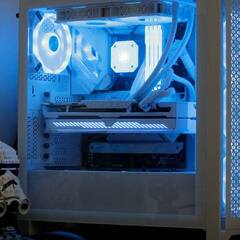Looking to Set Up NAS
-
Featured Topics
-
Topics
-
0
-
Fox420 ·
Posted in Troubleshooting1 -
0
-
PSP. ·
Posted in Programs, Apps and Websites0 -
2
-
1
-
0
-
0
-
1
-
ehaan ·
Posted in Graphics Cards2
-















Create an account or sign in to comment
You need to be a member in order to leave a comment
Create an account
Sign up for a new account in our community. It's easy!
Register a new accountSign in
Already have an account? Sign in here.
Sign In Now